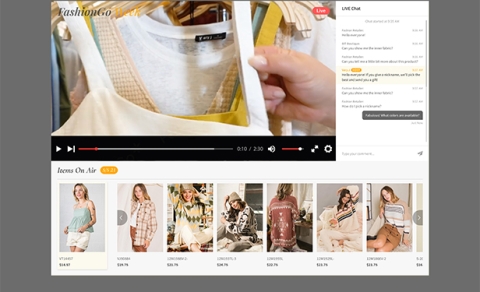6 Reasons Why Digital Fashion Shows Will Be Stylish Post-Pandemic

The tactile nature of the fashion industry ensures face-to-face gatherings will always be important for exhibitors to do business with buyers. But Paul Lee, CEO of NHN Global, parent company of FashionGo, says virtual shows will have their share of the runway, too.
“Digital shows will coexist with physical ones,” Lee predicted.
Some numbers suggest he is correct. Fashion Go experienced a 180% increase in newly registered retailers in August 2020, when its first virtual FashionGo Week launched. In February, the platform witnessed another 160% increase in registered retailers before the company’s second virtual event.
Heavyweights like Clarion, Reed Exhibitions and Tarsus were reliant on virtual engagement in 2020 before going back in-person this February in Orlando. A month later, Fashion Community Week served the West Coast with its 12th edition of a four-day virtual event, which included two conferences focused on the industry’s future, as well as a Spring fashion show and, of course, shopping.
We talked to Lee about why the digital trend is here to stay.
1. It isn’t actually a trend. COVID-19 didn’t bring about the advent of digital fashion events, but it accelerated the time frame. “It’s something that would have happened in three-to-five years,” Lee predicted. “We always had the capabilities and resources to create a digital trade show.”
2. There is demand for digital. Describing itself as the leading B2B wholesale e-commerce marketplace, FashionGo serves wholesalers and 756,000 retailers. The company’s base was already gravitating toward more e-commerce, and attendance proved virtual shows met a niche that is not likely to go away.
3. Digital democratizes the process. “Retailers and exhibitors save time and costs on travel,” Lee noted of virtual events. “They are really quick and easy to access, regardless of where you are located geographically.”
4. Analytics helps the buyer. Lee is particularly bullish on FashionGo’s platforming allowing for real-time search capabilities. “Buyers can make more informed decisions,” he said at least three times in a 15-minute conversation.
5. Exhibitors gain exposure. To improve the show, FashionGo added private video chats connecting exhibitors and buyers. The “Join Us Live” feature spotlighted new and top-selling brands. “Digital exhibition platforms have greater visibility for vendors,” Lee said.
6. There is room for growth. As a relatively new addition to the events industry, virtual fashion shows will only improve over time. Lee already promised new innovations for the next FashionGo Week.
Don’t miss any event-related news: Sign up for our weekly e-newsletter HERE and engage with us on Twitter, Facebook, LinkedIn and Instagram!


Add new comment